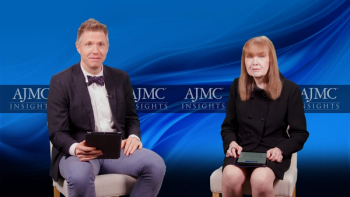
Panelists discuss how progression independent of relapse activity (PIRA) represents a distinct pathological process involving smoldering inflammation and neurodegeneration that drives disability in patients with multiple sclerosis (MS), particularly manifesting around midlife despite being present from disease onset.




